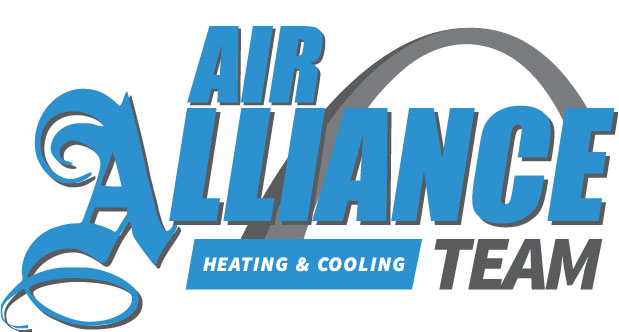
If you’re questioning whether your Ballwin and St. Charles house has poor indoor air quality (IAQ), it probably does.
We are indoors a lot. In reality, we’re in a building up to 90% of the time, according to the U.S. Environmental Protection Agency. And the air inside homes could be 2–5 times more contaminated than outdoors, which might create long-term health issues.
Most Common Sources of Bad IAQ
We’ve made a list of the most frequent causes of poor IAQ, the issues they cause and how you can take care of these indoor air pollutants. If you’re worried about the air inside your house, we suggest consulting with a professional like Air Alliance Team about which products are best for your family.
Volatile Organic Compounds
Volatile organic compounds, or VOCs, are fumes emitted from everyday household items.
They’re found in paint and stains as well as:
- Furniture
- Carpet
- Building materials
- Cleaning products
- Cosmetics
- Air fresheners
- Candles
When these chemicals accumulate inside, they might irritate your eyes, nose and throat. They can also cause headaches and nausea. Regardless of whether your home is in a rural or industrial area, an EPA study found indoor levels of these fumes can be 2–5 times greater than the air outdoors.
Always adhere to the manufacturer’s directions when using paint or cleaning supplies. Unlatching a window can help vapors disappear faster.
Air purification systems can also improve your air. This unit partners with your heating and cooling unit to clean indoor air. When looking for a model, ensure it’s specifically created to eradicate VOCs.
Dust and Pet Dander
Dust and pet dander can trigger health problems like asthma and allergies, especially when it continuously gets moved by your house’s comfort system. While you can vacuum more routinely and buy an improved air filter, an air filtration system could be a better fit.
This equipment hooks to your comfort equipment to deliver mighty filtration. Some kinds provide hospital-level filtration for eliminating particles and bioaerosols.
Persistent Odors
New residences are closely sealed to enhance energy efficiency. While this is good for your utility bill, it’s not very good for your IAQ.
Stale odors can hang around for a greater amount of time because your house is pulling in less fresh air. Since keeping your windows open all the time isn’t an option, here are two ways you can make your indoor air smell cleaner.
An air purification system is placed in your ducts to eliminate odors before they get released again. Search for one with a carbon filter and the capability to wipe out dangerous VOCs. These units can also help keep your family healthy by eliminating most bacteria and normal allergy triggers like pollen and mold spores.
A ventilation system removes stale indoor air and exchanges it with clean outdoor air. There are two types of systems (heat recovery and energy recovery), so ask our professionals for more details on which kind is right for your home.
Uneven Humidity
It’s essential your residence’s humidity stays even. Air that’s too humid can lead to mold, while dry air can cause respiratory concerns.
Our technicians suggest 40–50% for the best comfort. To keep yours steady, consider getting a whole-home humidifier or whole-home dehumidifier with your comfort system.
Rather than having to lug a humidifier from room to room, this equipment delivers balanced humidity across your house.
Carbon Monoxide
Carbon monoxide is colorless gas you can’t smell. It’s caused by insufficient combustion in fuel-burning appliances, like gas heating systems, water heaters or fireplaces.
It causes a severe health risk. In small levels, it can lead to flu-like ailments like headaches and nausea. It may be fatal in large levels.
We advise regular furnace maintenance to make sure your system is running properly. This job allows our technicians to see problems before they start, including malfunctions that can cause carbon monoxide leaks.
The best approach to keep your home free of carbon monoxide is to get detectors. These alarms must be on every floor near bedrooms and living spaces.
Improve Your House’s Air Quality with the Air Alliance Team Pros
Aware that your house has inferior air quality but not sure how to improve it? Or unsure which option is best for you? Give our friendly HVAC experts a call at 636-206-4584 or contact us online right away. With free estimates and professional assistance, we’ll help you locate the best solution for your family and budget.
